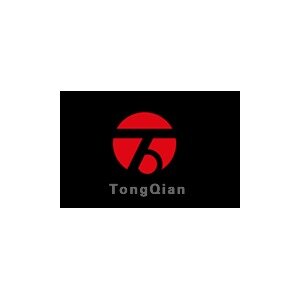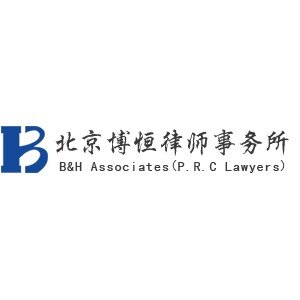Best Foreclosure Lawyers in China
Share your needs with us, get contacted by law firms.
Free. Takes 2 min.
Free Guide to Hiring a Real Estate Lawyer
Or refine your search by selecting a city:
List of the best lawyers in China
About Foreclosure Law in China
Foreclosure in China refers to the legal process whereby a lender seeks to recover the balance of a loan from a borrower who has stopped making payments by forcing the sale of the asset used as the collateral for the loan, typically real estate property. The foreclosure process in China is governed by national law with guidelines on how financial institutions manage non-performing loans, particularly in the context of real estate. The process tends to lean towards protecting debtor rights while also ensuring creditors can recoup losses.
Why You May Need a Lawyer
Legal situations involving foreclosure can be complex and financially significant. Here are common scenarios where individuals or businesses might need legal assistance:
- Negotiation with Lenders: A lawyer can negotiate terms with the lender to prevent foreclosure through repayment plans or loan modification.
- Legal Representation: If your property is at risk of foreclosure, a lawyer can represent you in court proceedings.
- Understanding Rights and Obligations: Chinese foreclosure laws have numerous obligations for both borrowers and lenders, which need expert interpretation.
- Debt Restructuring: A lawyer can assist in restructuring your debts to make payments more manageable.
- Buyback Options: Legal experts can advise on any buyback rights or redemption periods available under Chinese law.
Local Laws Overview
Foreclosure in China is primarily guided by the Property Law and relevant judicial interpretations. Key aspects include:
- Judicial Foreclosure: In most cases, foreclosure requires court proceedings. This ensures oversight and fairness in the process.
- Non-performing Loans: Regulations strictly define when loans are non-performing and trigger foreclosure actions.
- Debtor’s Rights: Borrowers have rights to redeem their property by settling the outstanding debt before sale completion.
- Bidding Process: Foreclosure auctions are conducted under judicial supervision to ensure transparency.
- Consumer Protection: Laws exist to protect consumers from predatory lending practices leading to foreclosure.
Frequently Asked Questions
What is the foreclosure process in China?
The foreclosure process in China typically requires court intervention. After a borrower defaults, the lender files a lawsuit. If the court rules in the lender's favor, the property may be auctioned or sold to recover the loan.
How long does foreclosure take in China?
The entire process can take several months to over a year, depending on the complexity of the case and the court's schedule.
Can I stop a foreclosure once it has started?
Yes, borrowers can negotiate with the lender for repayment options, or through legal intervention, they might seek to halt the process.
What are my rights during a foreclosure?
You have the right to be informed of proceedings, to settle debts before the sale of the property, and to receive any surplus from the auction after debts are paid.
Are there any alternatives to foreclosure?
Alternatives include loan modification, payment restructuring, short sales, or property auctions through negotiation to avoid full legal foreclosure.
Can foreigners face foreclosure in China?
Yes, foreign property owners in China can face foreclosure under similar conditions as Chinese nationals if they default on loans.
What happens to my credit score after a foreclosure?
A foreclosure can significantly impact your creditworthiness, affecting future loan applications and interest rates.
Do I need to vacate my property immediately after foreclosure is initiated?
No, you do not need to vacate immediately. Legal processes must be exhausted before eviction.
Can banks foreclose without court proceedings?
Generally, banks need to proceed through court channels to ensure lawful foreclosures.
What is the role of the People's Court in foreclosures?
The People's Court oversees the foreclosure proceedings, adjudicates disputes, and ensures judicial foreclosure sales are conducted fairly.
Additional Resources
For assistance with foreclosure issues, consider reaching out to the following:
- Local Legal Aid Centers: They offer affordable or free legal advice.
- Chinese Banks and Financial Institutions: Reach out for discussions on loan terms and conditions.
- Non-Governmental Organizations (NGOs): Some NGOs provide support to consumers facing debt or mortgage issues.
- China Banking and Insurance Regulatory Commission (CBIRC): This body offers guidelines and supervision on financial regulations.
Next Steps
If you are in need of legal assistance regarding foreclosure in China, consider the following steps:
- Consult a Lawyer: Finding a lawyer who specializes in Chinese real estate and foreclosure law can be invaluable.
- Gather Documentation: Organize essential documents like loan agreements, payment records, and any lender communications.
- Understand Your Rights: Familiarize yourself with your legal rights as a borrower in a foreclosure situation.
- Negotiate with Lenders: Attempt to reach an agreement with the lenders to avoid court proceedings.
- Prepare for Proceedings: If unavoidable, be ready to participate in legal proceedings with adequate legal representation.
Lawzana helps you find the best lawyers and law firms in China through a curated and pre-screened list of qualified legal professionals. Our platform offers rankings and detailed profiles of attorneys and law firms, allowing you to compare based on practice areas, including Foreclosure, experience, and client feedback.
Each profile includes a description of the firm's areas of practice, client reviews, team members and partners, year of establishment, spoken languages, office locations, contact information, social media presence, and any published articles or resources. Most firms on our platform speak English and are experienced in both local and international legal matters.
Get a quote from top-rated law firms in China — quickly, securely, and without unnecessary hassle.
Disclaimer:
The information provided on this page is for general informational purposes only and does not constitute legal advice. While we strive to ensure the accuracy and relevance of the content, legal information may change over time, and interpretations of the law can vary. You should always consult with a qualified legal professional for advice specific to your situation.
We disclaim all liability for actions taken or not taken based on the content of this page. If you believe any information is incorrect or outdated, please contact us, and we will review and update it where appropriate.
Browse foreclosure law firms by city in China
Refine your search by selecting a city.














